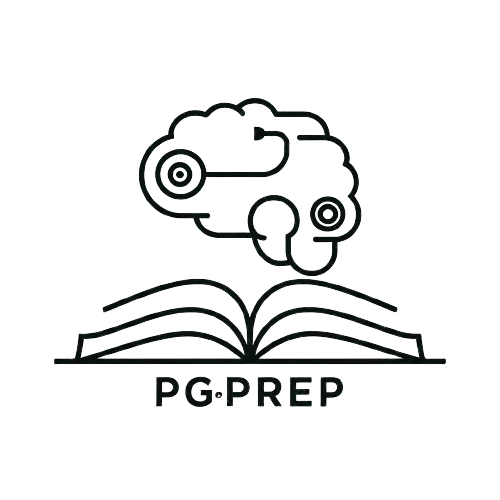Subject Tracker Page (Login for better functionality)
Login to save the data to Cloud and sync between multiple devices
Subject Progression Tracking:
- Anatomy
- Physiology
- Biochemistry
- Pathology
- Pharmacology
- Forensic Medicine
- Microbiology
- Community Medicine (PSM)
- Ophthalmology
- ENT (Otorhinolaryngology)
- Medicine
- Surgery
- Pediatrics (Paediatrics)
- Obstetrics and Gynecology (OBGYN)
- Radiology
- Psychiatry
- Anesthesiology
- Dermatology
- Orthopedics
Data Backup:
You need to mannually backup your data once a day. Use the 'Backup Data' button to save your current progress, and 'Retrieve Data' to restore from the last backup. Remember to backup regularly to ensure your data is up to date.
How to Use Subject Tracker
How to Use the Subject Tracker
Phase One (5 months): This is your initial study phase. Complete the following steps:
- FR: First Read - Study the material for the first time
- QB: Complete the Question Bank
- R0: Base Revision - Revise as you study
Keep a daily study diary. Allocate 2 hours each day for revision:
- 1st hour: Revise material from the previous day
- 2nd hour: Revise material from 3 days ago
- After finishing each subject, revise it again within 7 days
Mark R0 as complete once you've done these three revisions.
Phase Two (3 months): Focus on thorough revision:
- Review your combined video and question bank notes
- Complete bookmark purges, tests, and Grand Tests (GTs) as outlined in the study tracker dashboard
Mark R1 as finished when you complete this revision phase.
Phase Three (2 months): Consolidate your learning:
- Complete your first study round, question bank, 25 GTs, subject-wise tests, and Previous Year Questions (PYQs)
- Incorporate all new information into your comprehensive notes
- Review your notes and redo the entire Question Bank
This constitutes your R2 (second grand revision).
Final Phase (2-3 months):
- Focus on Grand Tests, custom modules, and question banks
- Add all new points to your notes
- Continue revising your notes
If you complete another full revision in this phase, mark it as R3. Congratulations on revising four times! While challenging and sometimes tedious, this thorough revision process aims to create a vivid, almost photographic memory of the material. Your goal is to reach a point where seeing a question immediately triggers the correct answer in your mind.
